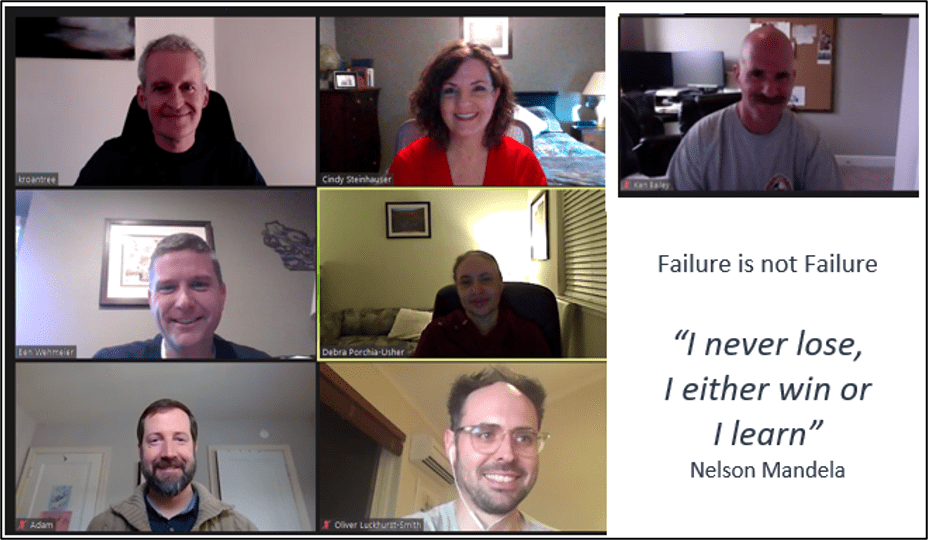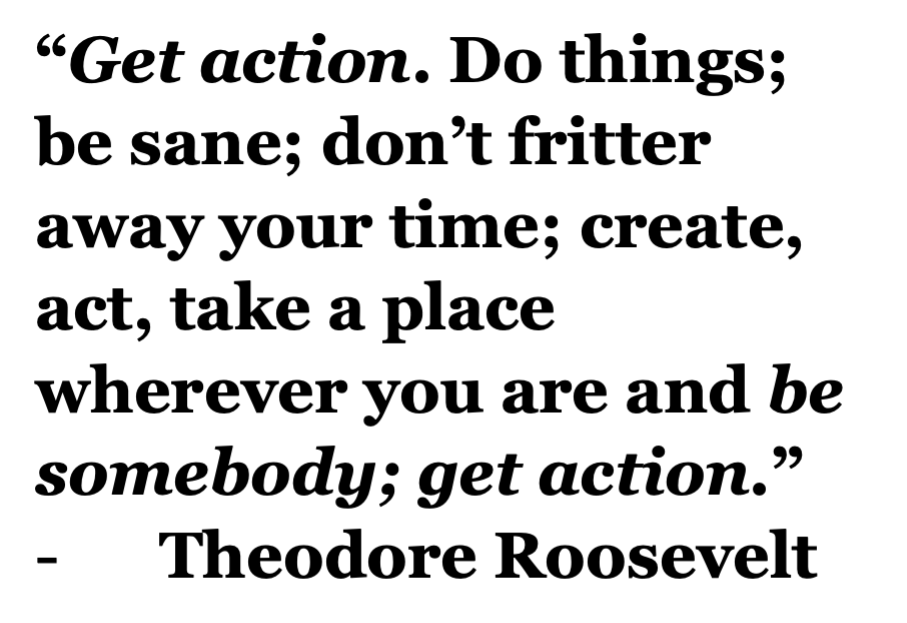Guest blog by Adam Harrison
IPP Learning Journey: Learning in the Age of Pandemic
In early 2020, I was lucky enough to be selected into the Harvard Kennedy School’s executive education class, “Implementing Public Policy (IPP).” I was thrilled that my supervisors at work had shown the confidence in me and interest in my development to make this opportunity available. Even more, I was excited to spend a week in Cambridge with a diverse group of professionals from across the country and the world. The experience would be enriching . . . and a few good meals in Boston’s North End would be pretty nice, too.
Then, all of a sudden, the world stopped spinning (in the U.S., at least). Schools closed, work sent us home, and the outdoors seemed frightening and dangerous. My trip to Cambridge was cancelled, of course. I only hoped that my chance to go to the Kennedy School would still be available after the pandemic.
But Matt Andrews and the IPP team decided to carry on and conduct the course virtually. Although I signed up immediately, I was somewhat skeptical that the class would work in a virtual format (also, weren’t we all skeptical about virtual work and virtual school?). While I was eager to begin the course, I was concerned that the distance would pose too great an obstacle to experiencing the best that the Kennedy School has to offer. How would I interact with my colleagues? How would I stay engaged for more than 20 weeks of zoom calls? As it turns out, the answer is to make a class that is both academically interesting and professionally useful.
What is PDIA . . . Yet Another System for Problem Solving?
When I think about implementing public policy, I consider my years of experience in various government agencies in the U.S. We follow a general template for developing high-level policy that consists of interagency meetings, formal and informal coordination, and word-smithing of executive orders and similar documents. We follow this with an implementation plan of some sort that lays out the 100 steps we will take to achieve the desired objectives within 2 or 3 years. Sometimes we are successful; other times we successfully write pretty documents. I assumed that the IPP course would teach us how to translate policy into execution – certainly a laudable end – but nothing particularly ground-breaking.
The IPP course teaches something different – something unexpected – called Problem Driven Iterative Adaptation (PDIA). This is a wholly distinct approach to solving complex problems that focuses on impacts instead of deliverables, asking questions instead of giving answers, and finding success through small positive steps instead of grand accomplishments. Most resonantly for me, the PDIA approach mandates that we pursue a problem through learning and asking questions, an entirely new way of thinking about policy (for me) that opens up new avenues to achieving our desired outcomes.
I chose an implementation challenge for this class based on my 15 years of experience working on resilience issues in the U.S. government. Despite the dedication of substantial resources and the development of multiple plans and capabilities, the U.S. government has demonstrated significant vulnerability to unexpected emergencies and crises. Each time a 9/11, a Hurricane Katrina, a Great Recession, or a pandemic happens, we are caught unawares and unprepared. I believe this is because we view resilience as a “response” activity in which we wait for a crisis to pass before engaging in the clean-up necessary to carry on. Instead, we could instantiate a forward-leaning posture in which we prepare for crises in advance by building resilience into our normal government functions. Unfortunately, the pandemic made it extremely difficult to move very far on this effort during the period of the class, but I did learn some important lessons.

A bi-weekly video check-in with my time-zone spanning team
The Leader as Hero Versus the Leader as Risk Manager
It is easy to envision a leader as the person on a white horse who single-handedly guides his or her team to success. This almost never happens. The IPP class posits that leadership is taking risks on behalf of the things you care about. Moreover, leadership is mobilizing and enabling others to take those purposeful risks with you. What a relief it is to not have to be a hero!
Solving big problems of the type discussed in this class can involve significant change, and change is very hard. Change is also risky, especially when outcomes are unknown. In this case, a leader is the type of person that can inspire others to work on something that is hard and risky because it is important. He or she creates the safe space necessary to let learning happen, to accept mistakes, and to let individuals grow.
The Value of Learning
I plan. A lot. I plan at work and at home. When my first son was born, I wrote a 15-page birth plan complete with annexes. As a resilience professional, I have spilt much ink writing plans to respond to this or that crisis. One writes plans when one knows the answers to a problem. This is inherently simple as long as the problem is straightforward, but we cannot plan for complexity with any degree of fidelity. Rather, PDIA teaches that we should acknowledge that we do not have all the answers and instead devote ourselves to learning.
Most workplaces emphasize learning through training and hands-on experience; however, few workplaces truly value learning itself. Staff are expected to have answers, and a day spent “learning” is often seen as a day not working. With the complexity of the 21st century, especially with regard to unexpected and unforeseen emergencies, the nation that values a learning approach to problem solving will have a major advantage in mitigating risk and achieving desired outcomes.
Many Small Wins = Success
Public policy takes months, and possibly years, to fully implement. It is unreasonable to expect a single, big win that results in successful implementation, and if there is a big win, it will fail without long-term follow through. The “iterative” part of PDIA suggests that repeated, small “wins” will ultimately lead to the overarching positive impact desired in the policy challenge.
The bureaucrat in me loves this idea, since I am fully accustomed to tiny, incremental steps toward larger ends through conversations, meetings, point papers, senior briefings, staff packages, and other endless tasks that – in aggregate – add up to actual policy implementation. It can be intimidating to think of the quantity of tasks required to solve a big problem, but it is heartening to realize that many small wins will, someday, lead to success.
Keep moving!
Every week, the reading and live video sessions of the class emphasized the importance of action. Keep asking questions. Keep meeting new people. What did you learn in the last two weeks? What will you do in the next two weeks? Other than the emphasis on learning, this may be the most important part of PDIA for me. To say it again, big policy problems are hard! It is easier to focus on the day-to-day minutia and avoid tackling hard problems. But PDIA forces you to keep moving. Even if the next step is small, it is still a step forward. Change is hard to implement, and bureaucracies are perfectly postured to slow down change by waiting for your energy to flag. If you keep moving forward, inch by sometimes difficult inch, you will continue toward the goal.
Concluding Thoughts
As I think back on the last 20+ weeks in the IPP course, I recall many moments of pandemic-inspired, professional pessimism, interrupted by some realization stimulated by a live virtual meeting or course reading that motivated me to approach an issue at work in a different way. Something would spark my imagination and I would immediately jot down a page or two of ideas or leads to pursue on some project. This class has provided me with a different way of thinking about complexity, difficult policy challenges, and maximizing my engagement as a professional. I have already begun to leverage the PDIA process in new efforts at work, and I feel confident that an emphasis on learning will pay off in a number of ways.
The COVID-19 pandemic may be the most significant personal and professional challenge that many of us will face in our lives. Perhaps this is the exactly the time during which leading through risk management, learning, leveraging small wins for big successes, and constant forward progress will be most salient as we try to figure out how to work – and live – in this environment.
Also, someday we can look forward to a few good meals in Boston’s North End.
This is a blog series written by the alumni of the Implementing Public Policy Executive Education Program at the Harvard Kennedy School. Participants successfully completed this 6-month online learning course in December 2020. These are their learning journey stories.


